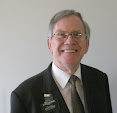Video added to blog
This is the story of how our Buchanan family came to Ireland and how they came to Canada in 1847 during the great Irish famine.
Bill Buchanan is a long-time genealogy enthusiast, living in Spruce Grove, Alberta, Canada. This blog will describe my experiences as I research my family history and help others.

I am a retired online school teacher. I love family history. From 2007-2020, I spent much of my time providing part-time support for the world's largest free family history site https://familysearch.org This is very rewarding. I have helped others with the Family Tree and related FamilySearch products.
In 2010-2018 I served in the Edmonton_Alberta_Riverbend_Family_History_Centre..I have a FHC blog at Bill's Family History Center Blog Since 2020 I have been a family history consultant for Edmonton Alberta North Stake.
For information on the Latter-day Saints and family history click https://www.comeuntochrist.org/
This is the story of how our Buchanan family came to Ireland and how they came to Canada in 1847 during the great Irish famine.
I did some more Hippard research. Uncle Charlie's father Mark Hippard was a bit of a puzzle, His first wife, Charlie's mother Hannah Maria Martin died and one of Charlie's sons had added Alice Lathey as Mark's second wife. The FreeBMD index showed Mark Hippard marrying Alma L Lathey in 1911, so her name was Alma rather than Alice. I presume that the family called her “Allie”.
Surname
First name(s) District Vol Page
Marriages Dec 1911
Hippard Mark Pontypridd 11a 904
Lathey Alma L Pontypridd 11a 904
But FreeBMD showed Mark's son Edwin J Hippard marrying Alma L Lathey in 1913,
Surname
First name(s) Spouse District Vol Page
Marriages Dec 1913
Hippard Edwin J Lathey Pontypridd 11a 1011
Lathey Alma
L Hippard Pontypridd 11a 1011
How could this be? Mark did not die until 1956, and why would Alma Louisa Lathey marry two men in quick succession who were a generation apart? I finally figured it out.
In 1911, Mark married Alma Louisa (Burridge) Lathey, a widow, whose husband had died two years previously. So “Lathey” was her previous married name, not her maiden surname. Then in 1913, Mark's son Edwin James Hippard, married Alma Louisa Lathey, the daughter of his father's second wife, who was technically his step-sister, although there was no blood relationship between the two of them.
It was an enjoyable puzzle, I can hardly wait for the 1921 UK Census to be released so that I can confirm my conclusions.
Over the past year, I have written stories of our extended family. And I have shared these stories with my family.
Family History Moment
We have recently watched some World War II documentaries. Your grandfather, Ernest Kinney served in this war, as did several other members of the family. My father volunteered but he was rejected as medically unfit because of a hernia. My uncles Walter and Charlie Ing, Albert Lidgett, and Evans Carson were soldiers. So were your mom's uncles Charlie Hippard, and Walter and Ralph Teale. Ralph died in the battle to liberate Brugges, Belgium. Walter's unit ran out of ammunition and were then taken as prisoners of war.
They almost never spoke of the war and the horrors they experienced.
My impressions were that Canadian troops basically served as part of the British Expeditionary Force. But their role seemed to be much more than I thought. I know that every year the Dutch remind us that the Canadians liberated Holland. I had read that on D-Day, when the Canadians landed on Juno Beach, they were the only one of the five allied armies able to take all of their objectives that first day, but I am not sure what factors were involved. I don't remember ever hearing the story of the Canadians' role in liberating Denmark. It was an interesting story, Hitler had just committed suicide, and the Soviet troops were advancing rapidly through the collapsing German armies. There was a concern that if the Soviets reached Denmark first, they might never leave. So two Canadian battalions, supported by a Scottish tank company were dispatched to head off the Soviet advance. They reached the German port of Wismar, and prevented the Soviets from advancing further towards Denmark.
Wikipedia's summary is https://en.m.wikipedia.org/wiki/Wismar “In World War II Wismar was heavily damaged by Allied air raids. At the end of the war in Europe, as the line of contact between Soviet and other Allied armies formed, Wismar was captured by the British 6th Airborne Division's 1st Canadian Parachute Battalion on 2 May 1945. This prevented further Soviet advance into north Germany and Denmark. On 7 May 1945 Field Marshal Montgomery and Marshal Konstantin Rokossovsky met in Wismar. On 1 July 1945, due to the occupation zone agreements of the Yalta Conference making Wismar a part of the Soviet Zone of Germany, the British troops departed and Soviet troops took over.”
The documentary told how these Canadian troops encountered civilians and German soldiers fleeing the Soviet front. There was relatively little shooting involved. Most of the German troops realized that the war was over, and were looking for an opportunity to surrender. The advancing Soviets were very unhappy to find allied troops already in Wismar, with tank destroyers blocking their path, but they did not attack the Canadians. This all reminded me of a conversation many years ago with our neighbors from Germany. “As the eastern front collapsed, our German troops were under strict orders. If you encounter British or American troops, surrender immediately, If you encounter Soviet troops, fight to the last man!” They had no expectation of any mercy from the Soviets, and any delaying of the Soviet advance would give more Germans the chance to escape.
My generation escaped the horrors of war. It is my hope and prayer that your generation may enjoy the same blessing too.
Love,
Dad/Grandpa/Bill